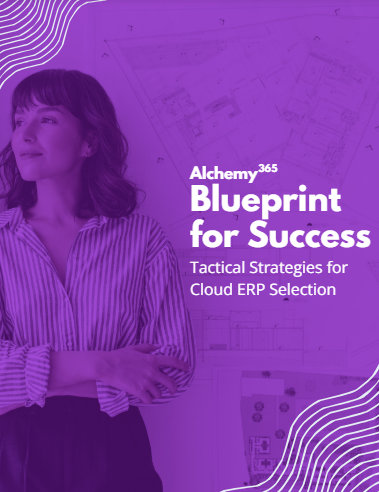Understanding ERP and Its Importance
In August 2024, the people of Ohio started buying marijuana after it was legalized for the 1st time in the year before. The Heart Of It All is one of the most recent states to legalize the recreational use of weed. As cannabis wins the favor of the law, cannabis businesses must choose their ERPs cautiously. Choosing the right software solution for their weed company will help them overcome competition.
Defining ERP Systems
Enterprise Resource Planning (ERP) integrates different business processes into a centralized system. So, these software solutions manage and automate functions like:
- Finance
- Human resources
- Inventory management
- Supply chain management
In short, ERP systems provide a unified view of an organization’s data; any department can access data in real-time for proper functioning. This way, ERP systems allow businesses to manage their resources, automate manual processes, drive growth, and track employee productivity efficiently.
Advantages of Implementing ERP
There’s a myth circulating online that ERPs aren’t for SMBs; that’s inaccurate! Small or midsize startups can also benefit from this software solution. For instance, ERPs can help you:
- Automate manual processes
- Improve data accuracy
- Provide a unified view of your data
- Reduce the risk of data duplication & inconsistencies
- Give real-time data to floor managers
This way, business owners can make informed decisions – all thanks to ERP technologies!
ERP Selection Criteria Checklist: 10 Factors
When selecting an ERP system for your business, it’s important to consider a variety of factors to ensure you choose the best solution for your needs. You can follow this brief checklist and learn the factors you need to go over for selecting an enterprise resource planning tool:
Business Needs
The first factor is how well this ERP aligns with your business needs.
- What are your business needs? In which business functions do you need help?
- What are the key features of your chosen ERP software?
- Are the ERP’s functionalities tailored to your niche or industry?
Functionality
An ERP solution is just as good as its usability!
- Does this ERP have an intuitive and user-friendly interface?
- Can non-tech-savvy employees easily use this software?
TCO
You should consider the total cost of ownership (TCO) of ERP (acquisition, installation, implementation, training, maintenance, etc.) as well.
- What are the ERP software licensing, hardware, & implementation costs?
- How much will you have to spend on customer support and software upgrades?
- Is this software saving your company money in the long run?
ROI
The last question (“Is this software saving your company money in the long run?”) takes us to a question on the ROI of acquiring this ERP.
- Does it make your workers more efficient?
- In which areas do you cut costs after ERP implementation?
- Are there any KPIs that can accurately measure the effectiveness of ERP?
Vendor Viability
These checkmarks are about the credibility of your ERP software vendor.
- What’s the vendor’s reputation in the industry (reviews/testimonials)?
- Has this vendor worked with clients like you before? Does the vendor have a track record of ERP implementation in your niche?
- Does this vendor have a stable financial background to support long-term services?
Implementation Process
You have to consider the implementation process here as well.
- What’s the expected duration of implementation of this ERP?
- What is the vendor’s approach regarding ERP implementation?
- What sort of internal resources will you need to implement ERP successfully?
Support & Training
Implementation isn’t the end of it; ERP software solutions require post-implementation support as well.
- What kind of support do you get post-implementation?
- Does your staff require minimal training or extensive education?
Scalability
Always choose a scalable ERP solution that grows with your company.
- Can the ERP grow as your business needs to expand?
- Can the system adapt to changing business processes?
- Can you reconfigure the ERP solution easily?
System Integration
Even the best ERP solutions are worthless if they don’t work well with your existing tech tools.
- Can this ERP integrate with your current software solutions?
- Does the ERP let you easily extract data from existing systems and transfer it to the new ERP?
- Which legacy systems must you get rid of to make this new ERP work?
Customization
This factor is very important for your business.
- Can you make changes to the ERP and choose between features?
- What APIs let you customize the ERP or integrate it with other apps?
How Can Alchemy 365 Help?
So, are you ready to select the perfect ERP for your business? Do you need to browse different tools and choose the best one? Alchemy 365 can be your next choice!
Modernize how you do business with Alchemy 365. Our ERP solutions help you organize your data, gain insights, and make the leap to the cloud. With our experience and reputation in the industry, we are the best option for businesses looking to implement an ERP system.






